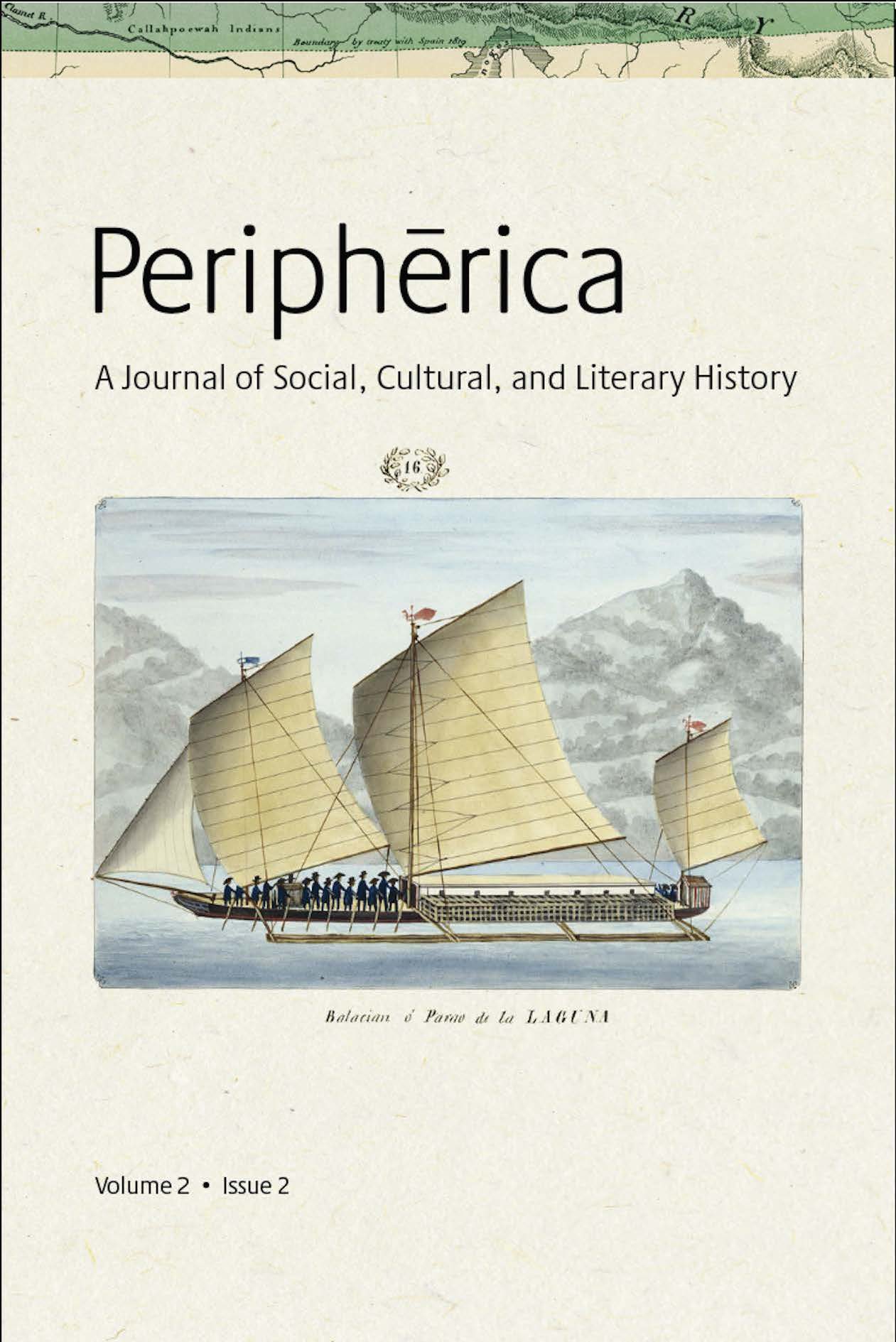José Martí: Political Organizing and the Issue of Race in the Period Leading to the Cuban War of Independence
DOI:
https://doi.org/10.7264/peripherica.2.2.5824Abstract
The last years of José Martí in the United States can be classified as one of the author’s most prolific intellectual periods in terms of race. In the 1890s, he published several articles on the subject as his activism for the liberation of the island gained decisive momentum. With this work we try to illustrate how Martí’s position regarding the racial issue evolved towards carrying out concrete actions, such as the foundation in 1892 of the Partido Revolucionario Cubano (PRC). The analysis is drawn mainly from a series of texts published in the Patria newspaper, the ideological organ of the PRC. Between 1892 and 1894, this publication was the platform that Martí used to prepare and promote the social scenario that he envisioned for the construction of post-colonial Cuba, encouraging racial inclusion and civil participation stemming from his political agenda.
References
Anderson, Benedict. Bajo tres banderas: anarquismo e imaginación anticolonial, trans. by Cristina Piña Aldao Akal Ediciones, 2008.
Camacho, Jorge “Los Fantasmas del miedo (al negro) en la literatura cubana de la primera mitad del siglo XIX”, The Bulletin of Hispanic Studies, no. 86, 2009, pp. 675–88.
Cantero, J. G. “Introduction” Los ingenios: colección de vistas de los principales ingenios de azúcar de la isla de Cuba, ed. Luis Miguel García Mora y Antonio Santamaría García. Centro Estudios y Experimentación de Obras Públicas, 2005.
Fernández, Aurea. El Partido Revolucionario Cubano. Universidad de Oviedo, 1998.
Ferrer, Ada, Cuba an American History. Scribner, 2021.
Ferrer, Ada, Insurgent Cuba: Race, Nation, and Revolution, 1868-1898. University of North Carolina Press, 1999.
Foner, Philips S. Our America. Monthly Review Press, 1977, pp. 11–68.
Guerra, Lillian. The Myth of José Martí: Conflicting Nationalisms in Early Twentieth-Century Cuba, Envisioning Cuba. University of North Carolina Press, 2005.
Helg, Aline. “Sentido e impacto de la partición negra en la guerra de Cuba” Revista de Indias, LVIII, 1998, pp. 47–63.
_________. “La mejorana y la independencia cubana: un choque de ideas y liderazgo entre José Martí y Antonio Maceo.” Cuadernos de Historia Contemporánea, no. 21, 1999, pp. 227–57.
Lawrence Tone, John. War and Genocide in Cuba, 1895-1898, Envisioning Cuba. University of North Carolina Press, 2006.
Martí, José. Obras completas vol. 1, 26 vols. La Habana: Editorial de Ciencias Sociales, 1991.
¬¬________. Obras completas vol. 2, 26 vols. La Habana: Editorial de Ciencias Sociales, 1991.
________. Obras completas vol. 3, 26 vols. La Habana: Editorial de Ciencias Sociales, 1991.
McGillivray, Gillian. Blazing Cane: Sugar Communities, Class, and State Formation in Cuba, 1868-1959. Durham: Duke University Press, 2009.
Pérez, Louis A. Cuba between Empires, 1878-1902. University of Pittsburgh Press, 1983.
Pérez-Cisneros, Enrique. El reformismo español en Cuba. Editorial Verbum, 2002.
Poey Baró, Dionisio. “Race and Anti-Racism in Jose Martí´s “Mi Raza”’. Journal Contributions in Black Studies, no. 12, 1994, pp. 55–61.
Poyo, Gerald Eugene. With All, and for the Good of All: The Emergence of Popular Nationalism in the Cuban Communities of the United States, 1848-1898. Duke University Press, 1989.
Ripoll, Carlos. Índice universal de la obra de José Martí. Eliseo Torres, 1971.
Rotker, Susana. “The (Political) Exile Gaze in Martí’s Writing on the United States”. José Martí ‘Our America’: From National to Hemispheric Cultural Studies, ed. Jeffrey Belnap y Raúl Fernández. Duke University Press, 1998, pp. 58–76.
Vitier, Cintio y Marruz, Fina García. Temas martianos. Centro de Estudios Martianos, 2011.



